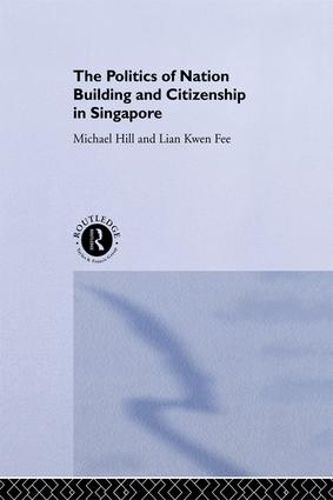Readings Newsletter
Become a Readings Member to make your shopping experience even easier.
Sign in or sign up for free!
You’re not far away from qualifying for FREE standard shipping within Australia
You’ve qualified for FREE standard shipping within Australia
The cart is loading…






Since independence in 1965 Singapore has strengthened its own national identity through a conscious process of nation-building and promoting the active role of the citizen within society. Singapore is a state that has firmly rejected welfarism but whose political leaders have maintained that collective values, instead of those of autonomous individuals, are essential to its very survival. The book begins by examining basic concepts of citizenship, nationality and the state in the context of Singapore’s arrival at independence. The theme of nation-building is explored and how the creation of a national identity, through building new institutions, has been a central feature of political and social life in Singapore. Of great importance has been education, and a system of multilingual education that is part of a broader government strategy of multiculturalism and multiracialism; both have served the purpose of building a new national identity. Other areas covered by the authors include family planning, housing policy, the creation of parapolitical structures and the imporatnce of shared “Asian values’ amongst Singapore’s citizens.
$9.00 standard shipping within Australia
FREE standard shipping within Australia for orders over $100.00
Express & International shipping calculated at checkout
Since independence in 1965 Singapore has strengthened its own national identity through a conscious process of nation-building and promoting the active role of the citizen within society. Singapore is a state that has firmly rejected welfarism but whose political leaders have maintained that collective values, instead of those of autonomous individuals, are essential to its very survival. The book begins by examining basic concepts of citizenship, nationality and the state in the context of Singapore’s arrival at independence. The theme of nation-building is explored and how the creation of a national identity, through building new institutions, has been a central feature of political and social life in Singapore. Of great importance has been education, and a system of multilingual education that is part of a broader government strategy of multiculturalism and multiracialism; both have served the purpose of building a new national identity. Other areas covered by the authors include family planning, housing policy, the creation of parapolitical structures and the imporatnce of shared “Asian values’ amongst Singapore’s citizens.